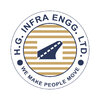Filter interviews by
Hindustan Construction Company Lab Incharge Interview Questions and Answers
Hindustan Construction Company Lab Incharge Interview Experiences
2 interviews found
(1 Question)
- Q1. What is reverse calculation
- Ans.
Reverse calculation is the process of working backwards from a known result to determine the original input or variables.
Reverse calculation is commonly used in mathematics and engineering to solve for unknown variables.
It involves rearranging equations or formulas to isolate the desired variable.
For example, if the result of 2x + 5 = 15 is known, reverse calculation can be used to determine that x = 5.
Reverse calculat...
(1 Question)
- Q1. What is reverse calculation
- Ans.
Reverse calculation is the process of working backwards from a known result to determine the initial input or variables.
Reverse calculation involves starting with the end result and working backwards to determine the initial values or variables.
It is commonly used in various fields such as mathematics, physics, engineering, and finance.
For example, in finance, reverse calculation can be used to determine the initial in...
Top trending discussions






Interview questions from similar companies

I appeared for an interview before Aug 2016.
Interview Preparation Tips
Experience: I have started my career with tube industry,
People used to tell that TI is best for tube,
So TI wasmy dream company,
One day I was in Ahmadabad received a call that yoyr resume short listed for TI, are you want to work with us?
Round: HR Interview
Experience: Its normal round questions was related to work experience and salary expectation.
Round: Technical Interview
Experience: Its was life changing round, I mean 1st and last round to selected,
So many questions in a familiar way not as a interview, In short very professionally.

I appeared for an interview in Oct 2024.
(2 Questions)
- Q1. How many days notice period
- Q2. Quality Engineer
Interview Preparation Tips

(2 Questions)
- Q1. Bitumen test VG 40
- Q2. Viscosity gread

(2 Questions)
- Q1. What is the bitumen
- Ans.
Bitumen is a sticky, black, highly viscous liquid or semi-solid form of petroleum.
Bitumen is commonly used in road construction for asphalt pavement.
It is also used in waterproofing products, such as roofing felt and sealing compounds.
Bitumen is a byproduct of the distillation of crude oil.
It is composed of complex hydrocarbons and contains sulfur, nitrogen, and oxygen compounds.
- Q2. Viscosity gread
Interview Preparation Tips

(2 Questions)
- Q1. Name kya hai apka?
- Q2. Degree kya hai



Interview Preparation Tips

I applied via Other and was interviewed in Apr 2021. There was 1 interview round.
Interview Questionnaire
1 Question
- Q1. Soil testing
Interview Preparation Tips

(5 Questions)
- Q1. Basic technical questions
- Q2. What is electrical safety?
- Ans.
Electrical safety refers to practices and precautions taken to prevent electrical hazards and accidents.
Ensuring all electrical equipment is properly maintained and inspected regularly
Using appropriate personal protective equipment (PPE) when working with electricity
Following proper lockout/tagout procedures when working on electrical systems
Avoiding overloading circuits and using proper grounding techniques
Training em...
- Q3. How to start maintenance work?
- Ans.
To start maintenance work, first assess the equipment, create a maintenance plan, gather necessary tools and materials, and follow safety protocols.
Assess the equipment to identify any issues or areas that need maintenance.
Create a maintenance plan outlining tasks, schedules, and resources needed.
Gather necessary tools and materials before starting the maintenance work.
Follow safety protocols to ensure the safety of yo...
- Q4. What is tha safety precautions before maintenance?
- Ans.
Safety precautions before maintenance include proper training, wearing appropriate personal protective equipment, isolating energy sources, and following lockout/tagout procedures.
Ensure proper training and understanding of maintenance procedures
Wear appropriate personal protective equipment such as gloves, goggles, and helmets
Isolate energy sources to prevent accidental startup
Follow lockout/tagout procedures to ensur...
- Q5. Verious types of safety instrument in industry?
- Ans.
Various types of safety instruments in industry include personal protective equipment, alarms, interlocks, and emergency stop buttons.
Personal protective equipment (PPE) such as helmets, gloves, and safety goggles
Alarms for notifying workers of potential hazards or emergencies
Interlocks to prevent equipment from operating when safety conditions are not met
Emergency stop buttons for quickly shutting down machinery in ca
Interview Preparation Tips
Hindustan Construction Company Interview FAQs
Tell us how to improve this page.
Hindustan Construction Company Interviews By Designations
- Hindustan Construction Company Site Engineer Interview Questions
- Hindustan Construction Company Civil Site Engineer Interview Questions
- Hindustan Construction Company Senior Civil Engineer Interview Questions
- Hindustan Construction Company Quality Engineer Interview Questions
- Hindustan Construction Company Civil Site Engineer & Site Incharge Interview Questions
- Hindustan Construction Company HSE Engineer Interview Questions
- Hindustan Construction Company Lab Incharge Interview Questions
- Hindustan Construction Company Mechanical Engineer Interview Questions
- Show more
Interview Questions for Popular Designations
- Lab Chemist Interview Questions
- Shift Incharge Interview Questions
- Production Incharge Interview Questions
- Production Shift Incharge Interview Questions
- Chemist Interview Questions
- Laboratory Supervisor Interview Questions
- QC Lab Chemist Interview Questions
- Quality Assurance Officer Interview Questions
- Show more
Hindustan Construction Company Lab Incharge Interview Process
based on 2 interviews
Interview experience
Interview Questions from Similar Companies
|
Civil Site Engineer
215
salaries
| ₹1.8 L/yr - ₹7.2 L/yr |
|
Site Engineer
209
salaries
| ₹2.7 L/yr - ₹7.2 L/yr |
|
Quantity Surveyor
54
salaries
| ₹3 L/yr - ₹7.2 L/yr |
|
Senior Planning Engineer
53
salaries
| ₹5 L/yr - ₹8.6 L/yr |
|
Mechanical Engineer
49
salaries
| ₹2 L/yr - ₹6.8 L/yr |

L&T Construction

Simplex Infrastructures

ITD Cementation India

Ashoka Buildcon
- Home >
- Interviews >
- Hindustan Construction Company Interview Questions >
- Hindustan Construction Company Lab Incharge Interview Questions













